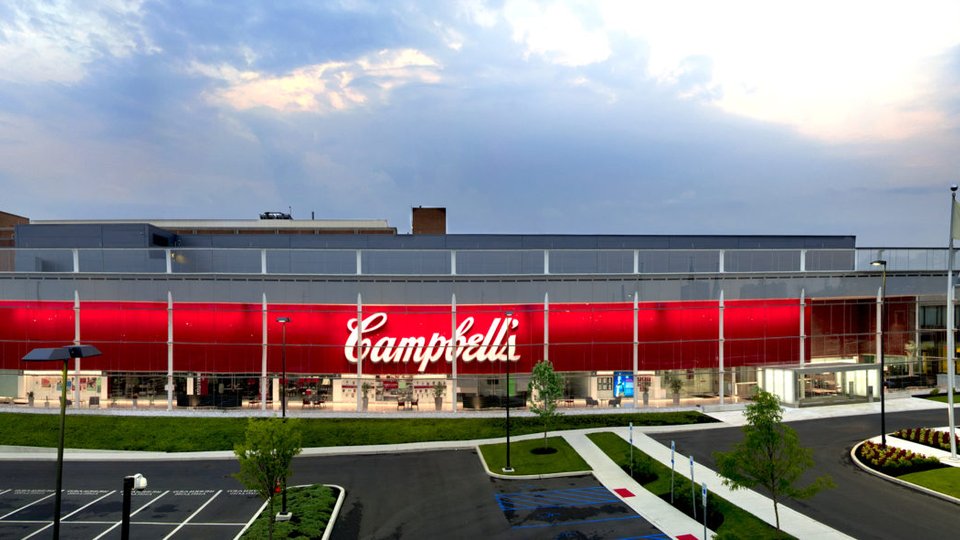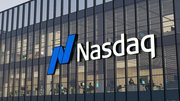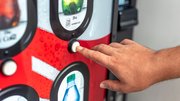Vending
Campbell Soup beats earnings expectations for Q4, boosted by COVID-19

September 3, 2020
The Campbell Soup Co. delivered higher than expected earnings for the fourth quarter with $0.63 adjusted earnings per share compared to analyst expectations of $0.60 , according to analysts surveyed by FactSet, as reported by The Street.
Campbell Soup shares were $52 around 9:40 a.m. today on the New York Stock Exchange, having posted steady gains through August but shy of the 52-week high of just under $58 in mid March.
The company's sales increased 18% to $2.11 billion for the fourth quarter ending Aug. 2, 2020, compared to $1.78 billion for the prior year's quarter.
Organic net sales, which exclude the impact from the additional week in the quarter and the impact from the sale of the European chips business, increased 12% from the prior year driven by favorable volume in both the meals and beverages and snacks segments. This reflected a continued increase in demand as at-home food consumption remained elevated.
"We continued to invest in our businesses during the quarter as we experienced unprecedented demand for our products and welcomed millions of new households to the Campbell portfolio," Mark Clouse, president and CEO of Campbell's, said in the press release. "This quarter concluded a year that furthered our strategic plan and solidified a significantly strengthened foundation that we will build upon going forward as we begin fiscal 2021."
Earnings before interest and taxes increased 101% to $167 million from $83 million for the prior year. Excluding items impacting comparability, adjusted EBIT increased 22% to $307 million as higher sales volumes, including the benefit of the additional week in the quarter, and improved gross margin performance, were offset partly by increased marketing investment and higher adjusted administrative expenses.
The company reported earnings of $0.28 per share, compared to a negative $0.02 per share in the prior year's quarter. Excluding items impacting comparability, adjusted EPS increased 50% to $0.63 per share compared to $0.42 for the prior year, reflecting an increase in adjusted EBIT, as well as lower net interest expense and a lower adjusted effective tax rate.
The company's performance in fiscal 2020 was significantly impacted by the increase in demand for its products amidst the COVID-19 pandemic.
The continuing effect of the pandemic on the operating environment is difficult to predict with enough certainty to provide a full-year outlook at this time. The company expects that demand for its products will remain elevated in the near term and accordingly, is providing guidance limited to the first quarter of fiscal 2021.
Snacks sales in the quarter increased 11%. Excluding the additional week in the quarter, the impact from the sale of the European chips business and the impact from currency, net sales increased 7% driven primarily by volume gains reflecting increased demand of food purchases for at-home consumption, as well as base business performance. These sales results reflect gains in fresh bakery products, Pepperidge Farm cookies, Late July snacks, Goldfish crackers, and Snyder's of Hanover pretzels, as well as Kettle Brand and Cape Cod potato chips.
Segment operating earnings for snacks were comparable to the prior year as sales volume gains, including the benefit of the additional week, were offset by increased marketing support and lower gross margin performance. Gross margin performance declined in the quarter as the benefits of cost savings initiatives and supply chain productivity improvements, as well as favorable product mix and improved operating leverage, were more than offset by higher supply chain costs related to COVID-19 and cost inflation.
Net sales for meals and beverages in the quarter increased 28%. Excluding the additional week in the quarter and the impact from currency, net sales increased 19% driven primarily by gains across the U.S. retail business, including gains in soups, V8 beverages, Prego pasta sauces and Campbell's pasta, as well as gains in Canada, partially offset by declines in food service. Volume was favorable in the retail business with increased demand of food purchases for at-home consumption, offset partly by the negative impact on the food service business as a result of shifts in consumer behavior and continued COVID-19 related restrictions. Including an 11-point benefit from the additional week, sales of U.S. soup increased 52% due to gains in condensed soups, ready-to-serve soups and broth.
Operating earnings for meals and beverages increased 24%. The increase was primarily due to sales volume gains, including the benefit of the additional week, and improved gross margin performance, offset partly by increased marketing support and higher administrative expenses. Gross margin performance was impacted by the benefit of supply chain productivity improvements and cost savings initiatives, as well as improved operating leverage and favorable product mix, partially offset by higher supply chain costs related to COVID-19 and cost inflation.
Gross margin increased from 34.0% to 35.4%. Excluding items impacting comparability, adjusted gross margin increased 190 basis points to 35.6%, driven by the benefits of supply chain productivity improvements and cost savings initiatives, as well as market-to-market gains on outstanding commodity hedges, improved operating leverage and favorable product mix, offset partly by higher supply chain costs related to COVID-19 and cost inflation.
Marketing and selling expenses increased 36% to $265 million. Excluding items impacting comparability in the prior year, adjusted marketing and selling expenses increased 37% driven primarily by increased investments in advertising and consumer promotion expenses across both segments. Administrative expenses increased 12% to $186 million. Excluding items impacting comparability, adjusted administrative expenses increased by $30 million, or 22%, with approximately one half of the increase driven by the estimated impact of the additional week in the quarter on general administrative costs. The balance of the increase reflects increases in charitable contributions, higher incentive compensation accruals, and higher benefit costs, offset partly by the benefits from cost savings initiatives.
For an update on how the coronavirus has impacted convenience services, click here.
 ChatGPT
ChatGPT Grok
Grok Perplexity
Perplexity Claude
Claude






